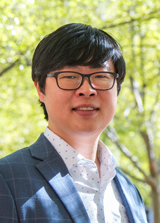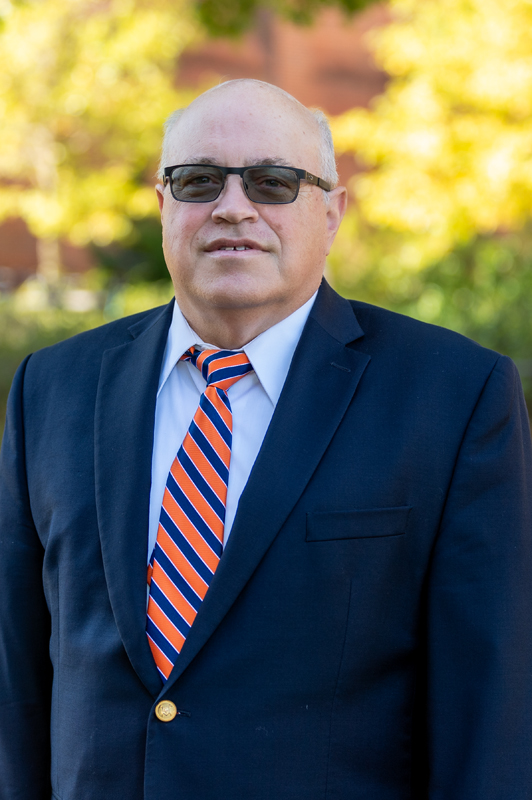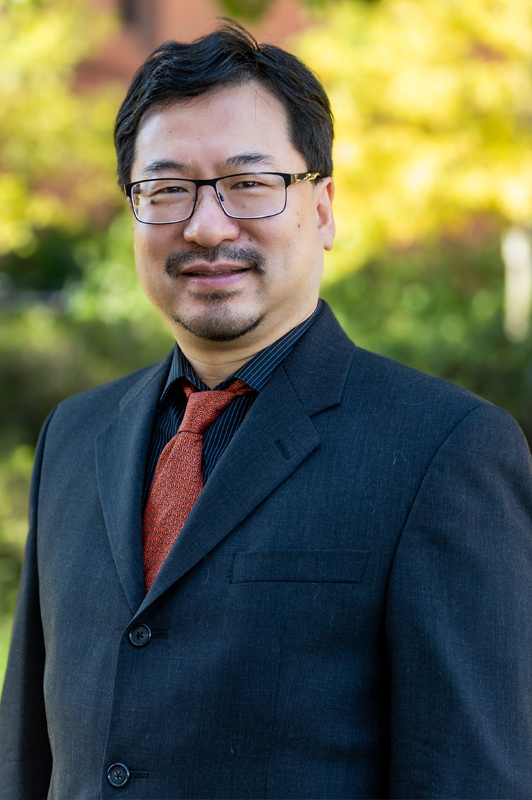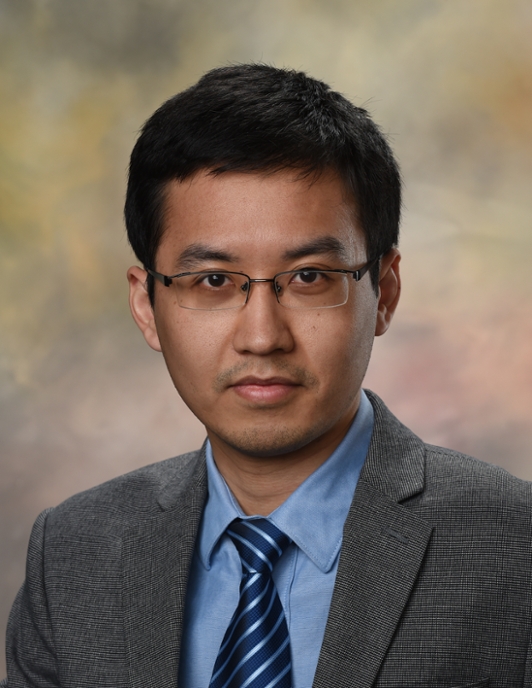Assistant professor in ECE wins NSF Early Faculty Development CAREER Award
Published: May 3, 2023 1:00 PM
By Joe McAdory
Fresh data is vital to operators because it is timely. Important data is vital to operators because it’s necessary for quick decision-making. Can machines learn to provide both sets of data simultaneously? Yin Sun, assistant professor and graduate program co-officer in electrical and computer engineering, believes they can – and will prove it through his newest proposal, “Semantic and Goal-oriented Status Updating for Real-time Inference, Monitoring, and Decision-Making.”
Sun’s impactful research was awarded a $516,000 National Science Foundation (NSF) Faculty Early Development CAREER Award, the NSF’s most prestigious award in support of junior faculty who exemplify the role of teacher-scholars through outstanding research, excellent education, and the integration of education and research within the context of their organizational missions.
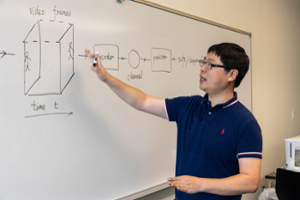
“This is a very special and important recognition of my work,” said Sun, whose research outcomes are expected to significantly impact numerous applications, including artificial intelligence and robots to health, safety and security. “Earning an NSF CAREER Award is great recognition our work and will further inspire our team of graduate students.”
Sun, winner of the 2021 Journal of Communications Best Paper Award, becomes the Department of Electrical and Computer Engineering’s third CAREER Award winner, following Shiwen Mao, director of the Wireless Engineering Research and Education Center (2010), and assistant professor Xiaowen Gong (2022).
“As an administrator, it’s been special to watch Dr. Sun’s growth as a researcher and educator,” said Mark Nelms, Department of Electrical and Computer Engineering chair. “Dr. Sun is the embodiment of a scholar and educator, who is not only committed to finding solutions to everyday technical problems related to machine learning but is also passionate about teaching the next generation of electrical engineers who will take what they’ve learned in his classrooms and impact society.”
Sun’s three-pronged proposal aims to 1) use information-theoretic analyses and experimental studies to interpret how the freshness and semantics of information affect the performance of real-time inference, monitoring, and decision-making systems, 2) design new communications techniques and networking protocols for optimizing freshness/semantics measures and system performance, and 3) explore the benefits of signal-aware status updating that goes beyond Age of Information (AOI) to achieve even better performance gain.
This project will provide innovative and foundational approaches to interpreting information freshness in a way that is both rigorous in theory and meaningful in practice, Sun said, by characterizing the significance of fresh information for real-time inference, monitoring, and decision-making.
“We will jointly use theoretical analysis and experimental studies to investigate how information freshness affects the performance of real-time inference and monitoring,” Sun said. “Innovative and application-centric scheduling algorithms will be developed to minimize the inference error in real-time machine learning and mitigate the performance loss caused by situation unawareness in real-time monitoring. Also, within sequential decision-making, one action affects subsequent ones, but the influence of a stale message endures over time. Because of this, the performance of a decision-making strategy depends not only on the AOI at the current time, but also on the AOI values at other time instances. We will develop new techniques to optimize freshness for decision-making.
“Our evaluation, used on a combination of testbed developments, experiments, simulations, and theoretical analysis, will be focused on AI and robots, which are two major applications of the proposed research. We will also make our research outcomes available to the public domain, to promote reproducibility and let the research community test them over time.”
Every NSF CAREER Award comes with an educational component, and this one is no different. Sun, who began his Auburn tenure in 2017, is excited to incorporate this into the research.
“I have developed three courses, reinforcement learning, information freshness, and applied statistics and machine learning,” said Sun, who published a monograph entitled, “Age of Information: A New Metric for Information Freshness” in 2019. “There are students interested in machine learning who take my courses and I aim to provide cutting-edge theories with easy-to-understand materials.”
The project is expected to conclude in 2028.
Media Contact: , jem0040@auburn.edu, 334.844.3447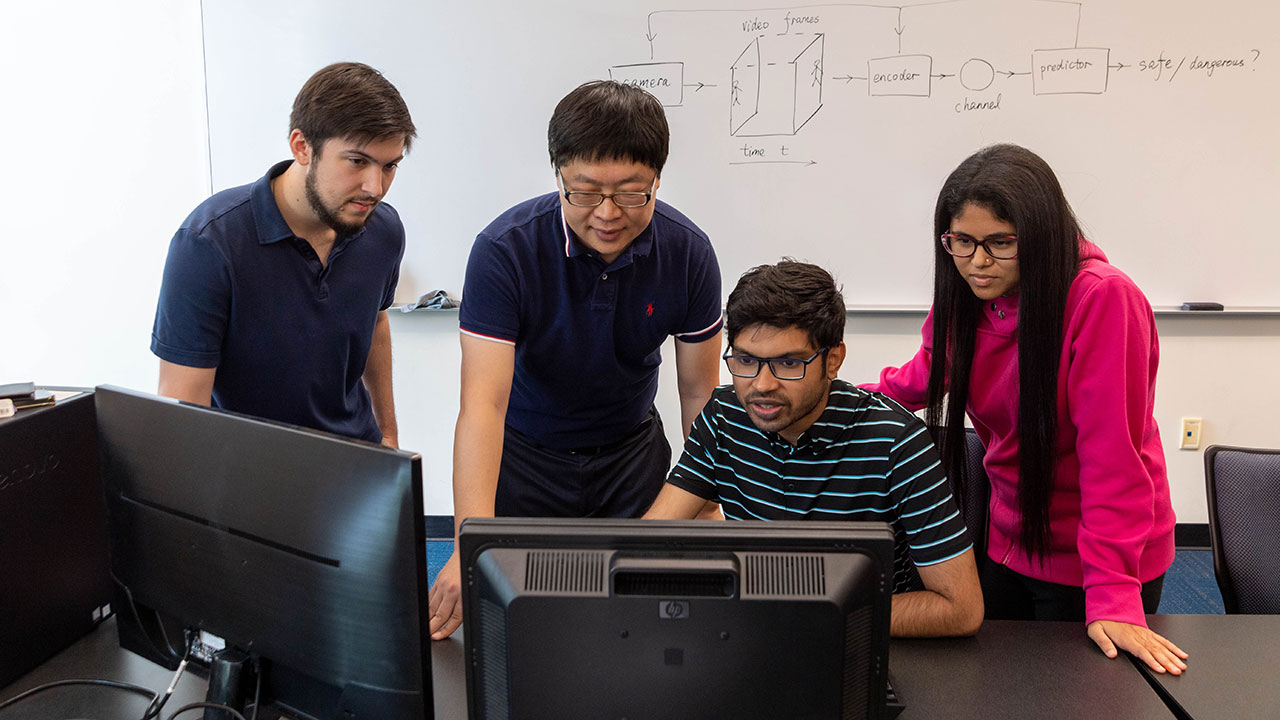
Professor Yin Sun with graduate students, from left, Thomas Orrison, Md Kamran Chowdhury Shisher, and Tasmeen Zaman Ornee.


